What music licences do you need in order to get an internet radio station or podcast that plays popular music up and running? Follow my journey in this podcast and learn more about the planning stages of an online radio station.
I’m hoping to have my online radio station broadcasting by the end of the year and over the past week I’ve been figuring out the correct licences that I’ll need to play mainstream music on the stream.
Feedback and Comments
Thank you to James Denmead, Rob Ellis, Ghost, Liam Sloan, Dave Thorpe and Geoff Wilding for your comments on last week’s episode. I talk about your views on this podcast episode and discuss the idea of internet broadcasting and playing music on your own radio station in more detail.
Love Listening to Podcasts?
This is a birthday present I recently received and I can tell you that, for me, it’s the best idea ever! The Plantronics M50 has become my 5th limb. I enjoy listening to podcasts and occasionally radio and now I can do it wirelessly as this Bluetooth headset pairs seamlessly with my iPhone. Also, if you have Siri you can hold the earpiece and chat directly with him (or her). It’s the perfect birthday or Christmas present for anyone who loves listening to podcasts and audio books.
UK Music Licensing Authorities
If you’re setting up an internet radio station you definitely need both a PRS and PPL licence to play music. Here’s a paragraph on the subject from PPL’s website:
PPL collects royalties on behalf of performers and record companies, while PRS for Music collects royalties on behalf of songwriters, composers and publishers. When a business plays recorded music in public, in most instances a licence from both organisations is legally required.
PRS License
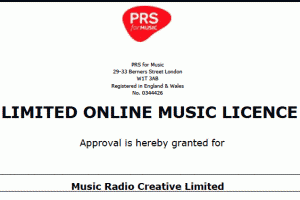
It’s very simple to apply for a limited online music licence for your broadcast needs. You click on to the PRS website and find the appropriate licence then after selecting ‘buy now’ just type in your card details and within minutes you’ll get an email with a pdf attachment that grants you the permission to provide a LOML (limited online music licence) service, subject to all the terms of PRS for Music.
PPL License
PPL require you to fill in the details of your application using an online web from and then you need to wait for them to manually approve your request for an online radio music licence. I’ve spoken to them on the phone and, from what I understand, they will be in touch in a matter of days once they’ve decided the correct licence bracket for me. I should receive something in the post to sign and return before I can begin broadcasting music.
Building a Music Library
If you already have your own vast music library you can start by copying the music to your hard drive and uploading to your internet radio host (providing you hold the correct licence to make a mechanical copy of the music you own). The biggest issue with importing music from a CD is retaining the id3 tags (or metadata) in the mp3 file with information like title, artist, album and even artwork. You usually need all this information for music reporting back to the music licensing authorities.
Thankfully there is an app for that! I’ve given TuneUp a try on some of my library and it is incredibly accurate. It scans parts of your mp3 files and uses Shazam style music recognition technology to add all the required id3 tags to your mp3 music library.
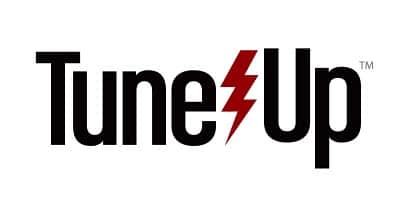
If you’re playing a specific style of music the best place I’ve discovered so far for sourcing music is Amazon MP3 – it’s so easy to use.
Prices are reasonable if you need to purchase a single track or even a bunch of tracks on an album. You can sort tracks related to a specific term of music genre by relevance or popularity (which is especially good when deciding what songs to rotate highly in your playlist). All the id3 tags come with each mp3 download and the files are yours to move around, copy and upload as oppose to some other solutions that have DRM (digital rights management) restrictions meaning you can’t play or copy the tracks elsewhere.
Bulk Podcast Promotion
A big shout out to Dave Jackson from the School of Podcasting who was kind enough to mention my bulk podcast promotion (as he’s named it) that I did back in episode 14 of the Music Radio Creative podcast. If you’re interested in starting your own podcast do head over to the School of Podcasting and check out Dave’s up to date tutorials and advice for podcasters.
Music Licensing Process
If you have your own internet radio station and have already completed the music licensing process – wherever you are in the world – do please leave a comment and let me know your experience. Any advice or tips would be most welcome as it is one of the first hurdles to leap before you can really start creating your own internet radio station.
Coming up in Future Episodes
- Using SEO (search engine optimization) to choose music for your radio station.
- How to measure listener statistics and other interesting online radio analytics tools.
- Getting a logo designed for your internet radio station.
If you provide one of the 3 services listed above contact me and I would be happy to consider featuring you on a future episode of the Music Radio Creative podcast.
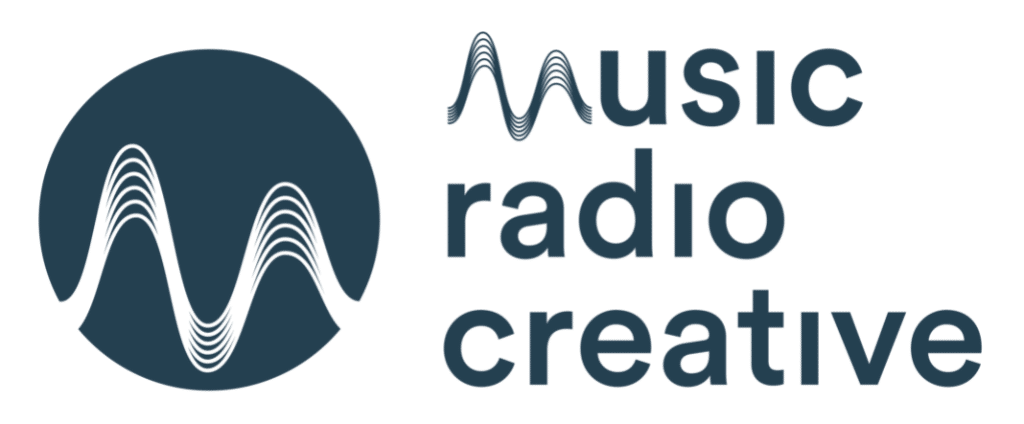
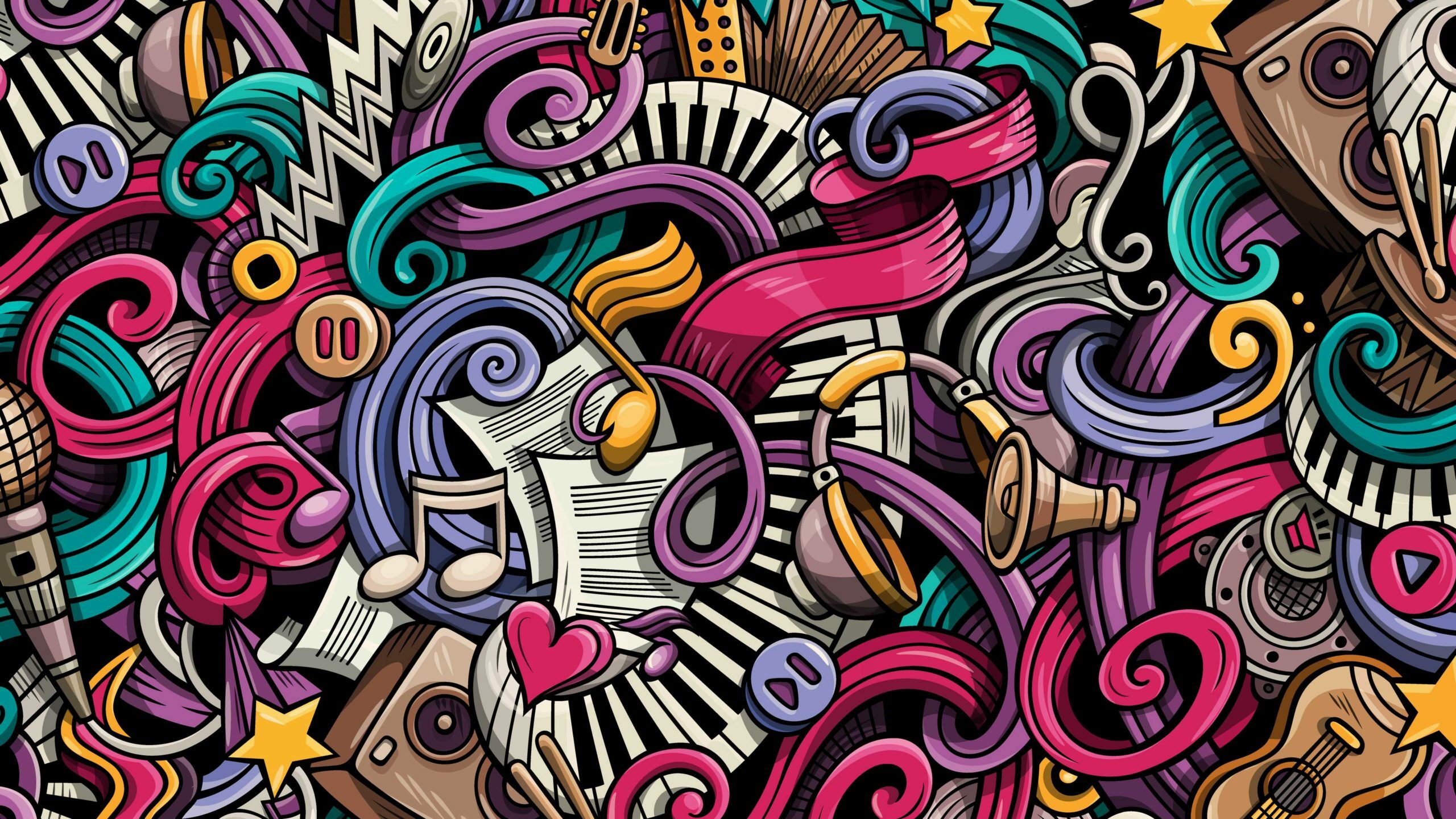
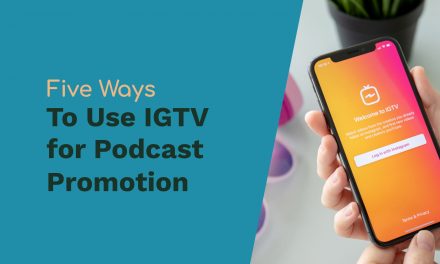

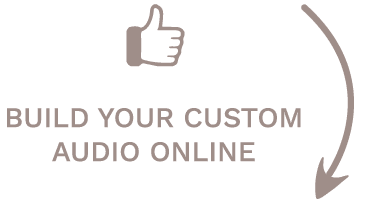





Great article 🙂
When you have your licence you will have to make “returns” to PRS and PPL, normally once a month. They will need to know your “listeners hours” and what music you have played. PRS can request album details too including composer. TuneUp can be very useful for this and it also works with iTunes.
think hard about your ID3 Tags as they can be very useful when databasing your collection, Year, Genre, Mood and the comments tags are particularly useful.
It with worth “normalising” you collection to ensure that you have even volume levels. I use MP3Gain for this and set the volume to 92db and use “Track Gain” rather than “Album Gain”. My playout software uses this information to either boost or reduce the volume of individual tracks.
Hope this helps
Dave
Twitter @ThorpeDave
Thanks. I’m still deciding which cloud solution to go with. I’ve decided that I certainly want my radio station hosted in the cloud so that I can set it up and leave it running even when my computers are shut down.
I’m curious of the ‘Auto DJ’ features that many internet radio hosts provide although I can’t imagine it would be as advanced as SAM VIBE or Airtime Pro?
SAM VIBE appears to have a great music reporting feature and basic listener statistics. Airtime Pro have a beautiful music reporting solution but, after contacting their support, they do not provide listener statistics (so I’d need to find a 3rd party solution). I’m looking into it and any recommendations would be welcome as I do my investigations.
As for TuneUp and tagging tracks with id3. I agree, the more information you can embed in the music track the better.
I also like the idea of normalising tracks and I may go one step further by adding some light compression to each track. Thoughts?
Mike
Using a cloud based solution has its merits – although they are extremely expensive in comparison to a having a play out + streaming service solution. It depends on how big your station is going to be and how many listeners you expect to get. Cloud based solution will also not have the degree of flexibility of a more traditional solution.
Personally I will go for a non-cloud based solution BUT will use SAM VIBE to run promo loops and “specials” – effectively a second channel.
Using software such as SAM Broadcast, RadioBOSS and the many other play out solutions provide maximum flexibility from a scheduling/automation point of view and how you want your station to “sound”. RadioBOSS can adjust equalisation and gain for individual tracks if you want according to the “Genre” tag. SAM Broadcast too has loads of adjustments you can make to create your own “sound”
Personally, I would leave your ripped CD files well alone, apart from normalisation, and remember your listeners can adjust equalisation at their end to suit their own personal preferences. I am not sure how you would apply light compression to tracks unless you do them individually ?? (Assuming of course, you are referring to audio compression rather than file compression?)
One point to note – the files you upload to SAM VIBE are NOT the files that are played out! SAM re-encodes the files and moves them to another server.
At the end of the day there is no such thing as a right or wrong way to do it just the best solution to meet your needs. It is important NOT to dive in and make a quick decision. You should always consider the variety of solutions – both technically and financially – before deciding what is right for you.
Hope this helps
Dave
This comment is super helpful.
Would love to, but
* A webcam – not got one!
* A Google+ account. – Not gone one!
* The passion to learn more about starting your own online radio station. – The passion I have in abundance!
However, I am happy to contribute here and, if you are interested, via phone ?
Dave
Hi Dave, a phone conversation would be great! Could you drop me an email, please?
Hi Mike
Just watched the Google Hangout on YouTube – very interesting.
Do you still want the phone conversation?
Dave
Glad you enjoyed. Yes I’m working out the details and will be in touch via email Dave.
hi mike
thank you for the mention. and another fantastic podcast
You’re welcome and thank you for your fantastic contributions to the podcast!
Loved the podcasr full of useful info.
You’re welcome. Are you starting/have you started your own online radio station?
As always Mike you get right to the point ! What may seem obvious to others is not so apparent to some. I am a “news man” with a mission to provide information to my local community via streaming. This means of course that I must learn the whole “music” thing for the entertainment proportion of my broadcasts.
Meta tags, streaming and other such devices were at one time a complete mystery to me. I still do not understand why when I rip some cd’s to my hard drive the artiste and title disappear or show in some foreign language, No doubt you will enlighten me. Also to be honest I find “streaming” a bit of a mystery. How does it actually work ? Sorry, it must be my age !
But keep up the good work. The jingles you have produced for me in the past are becoming very familiar in my town, I use them for promotion gigs and quite a few people ask me if Mike Russell is on the staff !
Geoff, I think that the choice of host for your online radio station can greatly help when it comes to the technical side like id3 tags, now playing, streaming and statistics.
I’ve made a decision on the host I’m going to use for my online radio station and they provide pretty much everything I need. I’ll reveal in next week’s episode – nice teaser!
Thanks for your kind comments and hopefully we’ll get there together with our online radio station dreams!
Streaming Licensing there is stream licence you pay monthly, Depending on you TLH
(TOTAL Listening Hours)
Thanks for the details feel free to share more information. Is there a link to see this type of licence?
This is has been helpful as i’m looking to start my own online local radio station been put off with the cost of PPL and PRS as I dont think I could make the money back with advertising.
Thanks for the comment Sean. You can always look at starting an online speech station or look into playing appropriately licensed Creative Commons music instead. Had you thought about doing that?
thanks Mike, I realise this blog post was written 6 months ago, I am in the process of starting up a weekly podcast where we want to include popular music, so I started my research.
I found the PRS and PPL as you mentioned, realised that I needed both, but the PPL site didn’t have an option for podcasting license, so I rang them directly.
The nice lady Lucy who I spoke with informed me that they don’t do licenses covering podcasts as podcasts vary so much with the amount of downloads etc… instead I’d have to negotiate with each record label for each song I wanted to play, to get permission and determine a price to be able to use the song…! ! ! !
Did you get a license through PPL in the end? (Your post says you’re waiting them categorising you)
I also learned that the PRS licence only covers downloads in the UK, and that I’d need a separate license for each country that the podcast was being downloaded from…!!!
So, at the moment it’s looking like a little fun project is turning into something that isn’t possible, we’d really love it to be though, we’ve got a great format, tested it out with a small group, gotten great feedback! It’s a 30-45 minute weekly podcast with 3 popular songs in it, or that was the plan…
Hi Claire Boyles. Thanks for sharing your story in the comments. It’s interesting to read what about the results you’ve had!
It is difficult to license music on podcasts which is why it’s not common to find a music podcast that plays music from the major record labels. My license is for a start/stop internet radio stream, as the audio is streamed and not downloaded, this means I can get a license to play commercial music. I would not be able to do the same on my podcast.
The practicality and cost of music licensing can sometimes be prohibitive for certain projects. I suggest a good solution for playing music without needing licenses in my latest podcast episode.
I wish you the best of luck and do keep me up to date with your progress 🙂
thanks Mike, do you have a link to your latest podcast episode please?
You’re welcome Claire Boyles. It is linked in my comment but links don’t show up so well on DISQUS. Here is it 😉
https://www.musicradiocreative.com/podcast/creative-commons-music-radio-podcast-episode-35/
thanks 🙂